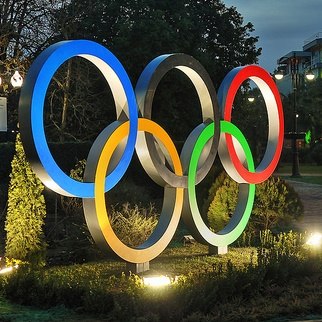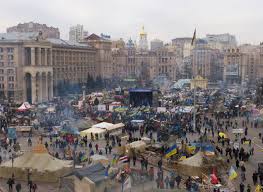The Sochi Olympics, as well as verbal battles over them, are over, yet their legacy will be closely scrutinized from different policy perspectives. What seems to be of utmost importance is to place Sochi in a wider framework of the global industry of sports mega-events shifting from Western to non-Western hosts. With Munich, Stockholm, and Toronto having recently refused to bid for the Olympics, this trend is more obvious. It raises a number of issues regarding norms, identities, competing interpretations of human rights, cultural diversity, and tolerance, to name a few.
Unlike Western nations and cities with relatively well-established identities, most of the future mega-event hosts in Eastern Europe and other post-Soviet areas have much less recognizable international profiles. Thus, they are keen on investing cultural and symbolic resources in developing (re)branding strategies and looking for new gateways to global audiences. This is particularly important given that many of mega-events beyond the West were (and will be) located in borderland areas with multiple identities. The most notorious cases are Kazan (the Universiade-2013), Lviv (the UEFA Cup – 2012), Minsk (the World Ice Hockey Cup-2015), Almaty and St. Petersburg (candidate cities for 2022 Olympics), and Baku (the First “European” Olympic Games to be held in 2015).
The Sochi Olympics have shown that, on the one hand, mega-events can erase certain political and administrative borders, and promote host cities' and nations' openness to the global world. The waiving of visa requirements for foreign fans during the Games is a good illustration of this. In the spirit of the Games, the Olympiad promotes transnational and cosmopolitan values, grounded in the primacy of human rights, emancipation, and human dignity. In other words, for non-Westerns hosts mega-events may turn into an instrument for overcoming their marginality and exclusion from European and Western social and normative milieu. Remaining deeply embedded in their national narratives, host cities however develop globally inclusive strategies aimed at reaching international transnational audiences and markets.
Yet on the other hand, mega-events in non-Western countries might exacerbate existing normative divisions or create new ones. Non-democratic hosts in Eastern Europe may face critical reactions from the West accusing them of human right violations, low environmental standards, corruption, maltreatment of migrant workers, and so forth. Politicization of mega-events, being an inevitable outcome of the growing importance of their normative content, contains strong bordering effects based on the fixation of self-other distinctions. The absence of most Western leaders in Sochi is a good illustration of this.
Therefore, mega-events are firmly inscribed in the existing fabric of international relations, with all their ruptures and gaps. It is against this background that the multiple comparisons of the Sochi Olympics of 2014 with the previous Games hosted by totalitarian regimes (mainly Nazi Germany in 1936 and the Soviet Union in 1980) have to be comprehended. Moreover, the Sochi Olympics demonstrated how mega-events may produce new regulatory practices where not only issues of security, but also everyday lives of human beings are put under strict mechanisms of pervasive surveillance. Those mechanisms can be based on the political logic of sovereignty, or on monopolization of certain segments of economy and finance—for example, the Visa credit card company was the only system available for banking transactions in Sochi. In this sense, Sochi was not only a showcase of Putin's great power ambitions, it revealed a harmony between the Kremlin, many international corporations, and global sports organizations.










